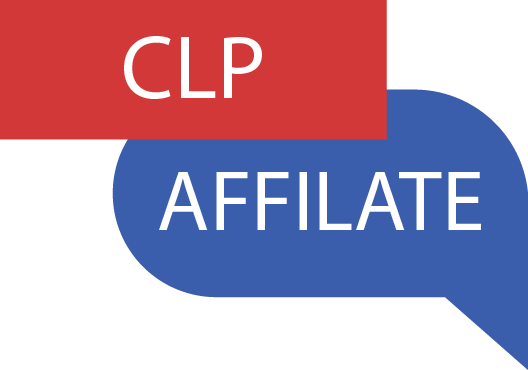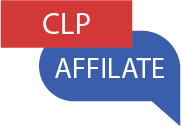In this article weâll cover:
- Does a small business owner need to offer health insurance?
- Methods to offer health insurance
- Contribution requirements and tax considerations
- What to look for when comparing plans
- Overview of health reimbursement arrangements (HRAs)
When every dollar is critical, there are several ways to offer your employees health insurance in a cost-effective and efficient manner. In todayâs competitive market to attract and retain top talent, good health insurance coverage is now table stakes. In this article, we will provide an overview for small business owners on how to offer your employees health insurance.
Do I have to offer health insurance?
Letâs answer the most common question small business owners have related to health insurance for their employees, âDo I even have to offer health insurance?â
The IRS breaks businesses down into two categories based on the number of employees you have: those with fewer than 50 full-time employees (or full-time equivalent employees) and those with more than 50 full-time employees (applicable to large employers). If you have fewer than 50 full-time employees, you do not have to offer health insurance to your employees. If you have 50 or more full-time employees, you are considered an applicable large employer and you do have to offer health insurance to your employees.
Keep in mind that certain states like Hawaii still require an employer to offer health insurance regardless of business size. This means that you additionally need to dig into your local stateâs rules and regulations regarding health insurance.
Even though the Affordable Care Act (ACA) does not dictate that small businesses with fewer than 50 employees are required to offer health insurance, it is still a good idea to do so. Todayâs labor market is very competitive. You will most likely not be able to attract and retain top talent without offering health insurance, among other benefits. Also, offering health benefits is a way to show your employees that you care about their personal well-being and the well-being of their families.
Generally speaking, the health insurance options you include in your benefits package can be purchased at a discounted rate because you are purchasing group coverage.
Methods to offer health insurance
There are a few methods to offer health insurance that small employers should focus on: finding a health insurance agent or broker via the ACA website, healthcare.gov, getting a quote from health insurance carrier websites, or joining a Professional Employer Organization; more commonly referred to as a PEO. Although this work can be done by yourself, turning to an agent, broker, or PEO allows you to tap into the expert knowledge who will already understand coverage options (more on that below). Letâs take a look at each method:
Find a local agent or broker via ACA
The ACA website offers a free tool to help small business owners find a local agent or broker to help them explore and understand options for offering health insurance to employees. Small business owners can use the free Find Local Help online directory and set up a time to talk in person, over the phone, or by email with a local resource.
Tapping into the expertise of an agent or broker can save you time as they will help you navigate the purchase of health insurance for your employees based on your specific needs.
To learn more about the world of insurance agents, please visit our guide Financing for Insurance Agents.
Get a quote via Carrier Websites
Small business owners can head directly to individual carrier websites to explore plan options, pricing, coverage details, and initiate the process of obtaining health insurance. Each process is slightly different; whether the carrier directs to you an independent agent or broker (meaning the agent or broker can represent multiple carriers at once to offer you rates from each) or a company sales representative (meaning the rep can offer you rates only from the carrier they represent), hereâs how you can get started with some popular small business health insurance carriers:
In addition to Anthem Blue Cross Blue Shield, United HealthCare and, Humana, other popular health insurance carriers for small businesses include Aetna, Kaiser Permanente, and Cigna.
PEO
What exactly is a PEO and why would a small business owner consider joining one? A PEO is full-service human resource outsourcing, also known as co-employment. As a small business owner, if you join a PEO, you can offer health insurance to your employees via the PEO. It can be a tricky dynamic to understand at first, but your employees become co-employed by your company and the PEO provider. Since the PEO provider already has these offerings established, you can simply tap into their existing infrastructure to offer a range of employee benefits.
A PEO also executes various administrative tasks for the small business such as payroll and benefits administration, tax filing, compliance, talent services, and more. Essentially, with a PEO, a small business can shift critical HR tasks to the PEO which can help a small business owner focus on the business.
There are several PEO providers to research. Justworks, TriNet, and Insperity are just some popular choices that small business owners should consider. A PEO also provides modern technology and support to administer benefits – which a small business might not have access to. For example, with Justworks, subscribers have access to flexible healthcare plans, including PPOs, HMOs, EPOs, and more, an online platform for employees to easily enroll and manage their coverage selections, manage the open enrollment period, information and assistance on any questions related to an insurance policy, and on-demand primary care services and personal health advocacy services at no extra charge.
Contribution Requirements and Tax Considerations
Although the ACA does not specifically state an amount that small business owners are required to contribute, some health insurance carriers or states require the small business to cover at least 50% of the premium for employee-only coverage. This means that there is no requirement for family coverage. However, this is a good opportunity to reiterate that health insurance is an opportunity to attract and retain top talent, and contributing the minimum could negatively impact your ability to do so.
The ACA offers small businesses tax credits to help offset the cost of insurance. Your business may qualify for the Small Business Health Care Tax Credit which could be worth up to 50% of the costs you pay for your employees’ premiums (35% for non-profit employers).
There are several requirements employers must meet in order to qualify for the tax credit, they are:
- You have fewer than 25 full-time equivalent (FTE) employees
- Your average employee salary is about $56,000 per year or less
- You pay at least 50% of your full-time employees’ premium costs
- You offer Small Business Health Options Program (SHOP) coverage to all of your full-time employees. (You don’t have to offer it to dependents or employees working fewer than 30 hours per week to qualify for the tax credit.)
For a closer look at this tax credit, including a tax credit estimator and details on how to qualify if no SHOP plans are available in your area (because you need to offer insurance via plans from the SHOP marketplace), FAQs, and more, visit the official ACA Small Business Health Care Tax Credit website.
What to look for when comparing plans
Choosing health insurance for a small business requires carefully reviewing the available coverage to make an informed decision. There are a lot of options that can make the process confusing, which is why speaking with a local agent or broker can be beneficial as they will help guide you through the process. Agents and brokers typically receive a commission from the health insurance carrier so their service is free for small businesses. However, some businesses might find a more hands-on approach is a better fit for their operation.
There are many health insurance carriers that offer many different types of plans with a range of health benefits, monthly premiums, deductibles, and coverage. Some factors to consider include:
- Known-insurance company with a good reputation: Selecting a plan from a known health insurance carrier that your employees are familiar with is important. Part of a health insurance carrier establishing a good reputation is having an easy claims process, customer service, and positive online reviews.
- Types of plans: Determine if the policy options include options for HMOs, PPOs, EPOs, or HSA-qualified. Plans should have access for both individuals and families.
- Premiums: The premium is how much the policy costs. The policy needs to be affordable to the employees and the company itself. Some companies decide to pay all or a large portion of the costs for employees because this can help attract and retain talent.
- Deductibles and copays: Consider how much the deductible is (how much your employees will have to pay out-of-pocket before insurance kicks in) as well as co-pays (costs the employee pays at the time of service). Many plans have different high deductible and low deductible options.
- Coverage limits: How much coverage is provided by the plan? For example, what is the maximum coverage provided and the coverage for each type of service, such as specialist care and preventative care?
- Physician coverage: Employees might already have preferred physicians and ideally you want them to be in-network. At the very least, understand how large the pool of in-network physicians is. If employees have preferred healthcare providers, be sure they are in-network.
- Exclusions: pre-existing conditions might be excluded from certain plans. Be sure to consider all eligibility requirements and any exclusions and how they will impact the health care coverage you provide.
It can be hard to decide what plan to pick. We already established the benefits of going through an agent or broker. Additionally, another tactic to help you decide which plan to go forward with is to survey your employees and ask them what they want. Receiving employee feedback can help clarify the general direction you should take.
Overview of HRAs
When considering a group health insurance plan (HRA) for your employees, health reimbursement arrangements can be an additional benefit to help with healthcare costs. Or, an HRA can be used as an alternative to group health insurance for employees who might not qualify for insurance benefits through a traditional health insurance carrier.
HRAs are an employer-funded health benefit used to reimburse employees, tax-free, for their health insurance costs, including health insurance premiums, out-of-pocket medical expenses, or a combination of the two.
When you offer coverage via a policy from the health insurance marketplace or directly from the health insurance carrier, you are purchasing a one-size-fits-all plan that might not work for all employees. The HRA empowers each employee to purchase individual health insurance that works best for them and their family.



